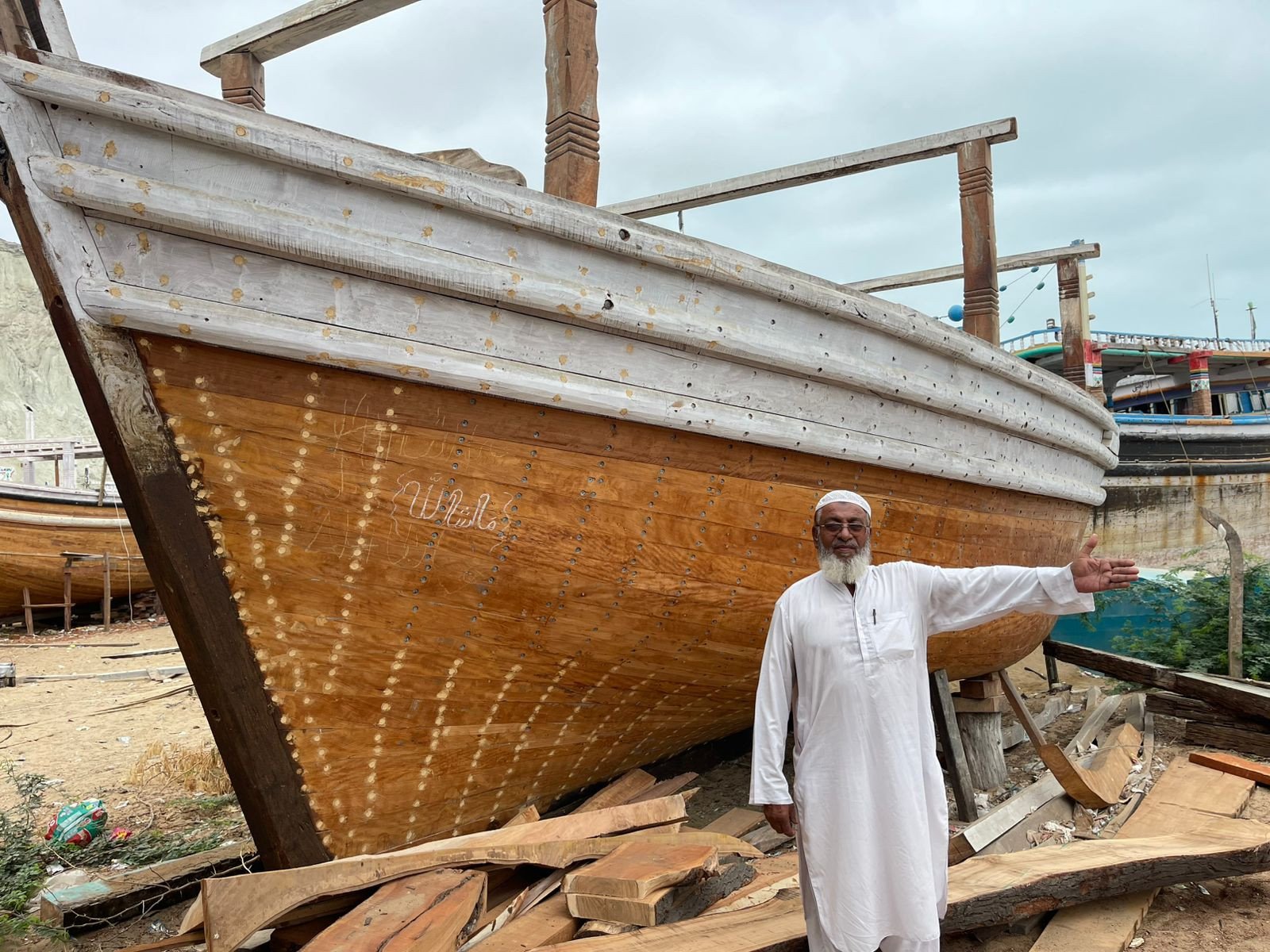Can an age-old heritage survive or will it sink into memory?
Our traditional wooden boat-building industry, an age-old craft is deeply embedded in the cultural and economic fabric of fishing towns such as Gwadar, Pasni, Ormara, Surbandar, Damb, Gaddani, and Karachi. Over two million people are directly involved in this industry that has steadily declined because of rapid paradigm shifts toward modern boat technologies, lack of institutional support, and the dwindling market demand. Once the pride of Pakistan’s coastal communities, is now on the verge of extinction.
According to Muhammad Moosa, a representative of the Wado Boat Builders Association in Balochistan, the tide has turned dramatically. “Nearly 65 percent of all fishing boats in operation today are fibreglass, and among the small fishing fleet, that number rises to 95 percent,” he explains. These fibreglass boats are often imported from Iran or are Pakistan-made and, in many cases, these enter the local market with minimal regulation. Hybrid models, which typically involve a partial fibreglass coating on an old wooden boat frame, now constitute around 18 percent of the overall fleet.
Shifting workforce and deteriorating infrastructure
The traditional industry is also facing significant challenges with labour and infrastructure. While the local boat-building tradition once relied on generations of Baloch and Sindhi craftsmen, the current environment sees workers from Punjab, Sindh, and Khyber Pakhtunkhwa supplementing the dwindling local talent. This shift is not without consequence; the nuanced skills that make the wooden boats so unique are gradually being lost.
Furthermore, the facilities where these boats are constructed are often inadequate. Moosa cites issues such as a lack of shaded work areas, insufficient health and safety measures, inadequat
Continue Reading on The Express Tribune
This preview shows approximately 15% of the article. Read the full story on the publisher's website to support quality journalism.
